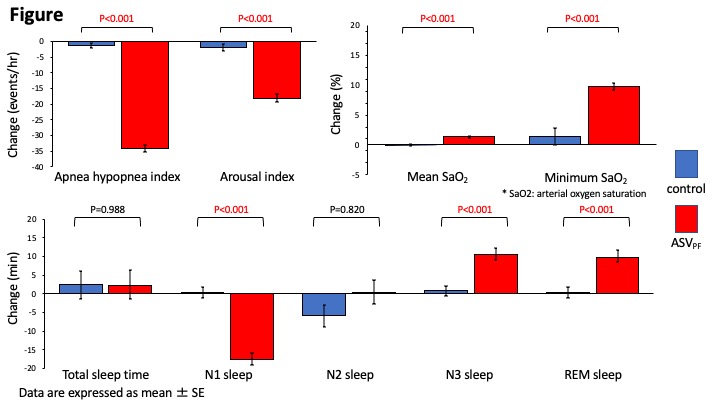Abstract
Introduction: The randomized Adaptive Servo-Ventilation for Therapy of Sleep Apnea in Heart Failure (ADVENT-HF) trial found that peak airflow-triggered adaptive servo-ventilation (ASVPF) improved patients? quality of life and reduced daytime sleepiness.
Aims and objectives: We hypothesized that improved sleep quality contributed to these benefits.
Methods: After baseline polysomnography (PSG), patients with heart failure and left ventricular ejection fraction ?45% (HFrEF) and apnea-hypopnea index (AHI) ?15 events/h were randomized to control or ASVPFand 1 month later had a repeat PSG. Changes in sleep structure between the ASVPF and control groups were compared.
Results: 375 patients were allocated to control and 356 to ASVPF. Baseline AHI and sleep structure were comparable in the control and ASVPF groups. Compared to the control group, ASVPF reduced the AHI and arousal index and increased mean and minimum arterial oxygen saturation (P<0.001 for all, see Figure). Stage N1 sleep decreased, and Stages N3 and REM sleep increased (P<0.001 for all).
Conclusion: These data are the first to demonstrate that, in patients with HFrEF, alleviation of sleep apnea by ASVPF improves sleep by reducing arousals and redistributing sleep from lighter to deeper stages. Such improvements likely contributed to the symptomatic improvement reported by ASVPF-treated patients in ADVENT-HF.
